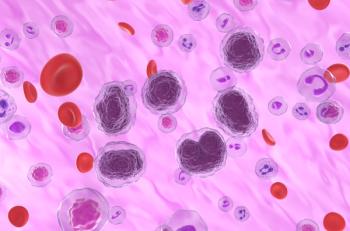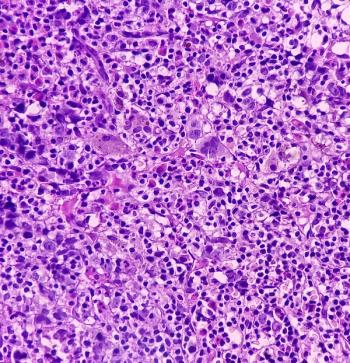
Cholesterol-lowering agents, like statins, reduced the risk of major adverse cardiovascular events and cardiovascular disease in patients with HIV.

Cholesterol-lowering agents, like statins, reduced the risk of major adverse cardiovascular events and cardiovascular disease in patients with HIV.

The ADA Clinical Practice Recommendations added sleep assessment for precision medicine in type 2 diabetes, supporting the wealth of information surrounding the association.

This breakthrough can be significant in the development for a vaccine and other preventative measures to protect individuals from leishmaniasis.

This marks the first FDA-approved systemic therapy for patients with grade 2 astrocytoma or oligodendroglioma with a susceptible isocitrate dehydrogenase-1 (IHD1) or IDH2 mutation.

Following a healthy, vitamin rich diet with less sugar was connected to a lower epigenetic age.

Replacing carmustine with cisplatin in BEAM ((carmustine, etoposide, cytarabine, and melphalan) conditioning could be more cost-effective for patients.

An overview of acid reflux and gastroesophageal reflux disease, over-the-counter options, long-term effects of proton pump inhibitors, lifestyle recommendations, and when to refer patients.

Acalabrutinib plus venetoclax, with or without obinutuzumab, demonstrated significant improvements in progression-free survival.

CD38 density may indicate the efficacy of monoclonal antibody treatment in patients with multiple myeloma.

Sunobinop binds to and activate nociception/orphanin-FQ peptide receptor, which is a known therapeutic target for substance use disorder.

Improvements were observed in both the intervention and control group, with those who had self-reported learning difficulties showing the least improvement.

A report from SkyQuest Technology highlights the growth in the oncology and insulin spaces, indicating they will contribute to the most growth.

The drug also receives orphan drug designation for the treatment of pancreatic neuroendocrine tumors and a Prescription Drug User Fee Act target action date of April 3, 2025.

Two different brands of intravenous immunoglobulin have been investigated, finding Brand P led to significantly longer durations of fever and hospitalization when compared to brand T.

The mRNA-1345 vaccine provides a one-off mechanism of protection because of its single-dose prefilled syringes

Customers report that their communication is strong with their pharmacists, but only 51% said their pharmacist was trustworthy.

The findings highlight the potential for developing more efficacious combination treatments for patients with glioblastoma.

A pharmacy's relationship with its state board(s) of pharmacy is crucial for its operation and success, yet it is often overlooked due to the complex demands on pharmacists and pharmacy owners.

Small adjustments in human pluripotent stem cell cultures and the molecule concentration patterns in the initial 5 days of differentiation are essential to “rescue” the lines.

Periodontitis and AD are both characterized by inflammatory and immunological response by the host.

The trial is evaluating the success of BNT111 and cemiplimab in treating unresectable stage III or IV melanoma whose disease had progressed following anti-PD-(L)1-containing treatment.

In the first half of 2024, the FDA approved 23 novel drugs for conditions including alopecia areata, Alzheimer disease, small cell lung cancer, bladder cancer, and more.

Zuranolone enhances health care providers’ ability to address the complex needs of patients with PPD, offering new hope for rapid and sustained relief from depressive symptoms.

In addition to a rapid deterioration, psychosis in Alzheimer disease can also lead to poorer quality of life, damaged patient-caregiver relationships, and increased isolation.

Investigators determine the efficacy and safety of the combination in a 2-phase trial.

The findings show that inhibiting connexin 43 significantly improves multiple sclerosis symptoms in an experimental mouse model.

Afamitresgene autoleucel (afami-cel) is a novel cell therapy for the treatment of patients with synovial sarcoma.

Edward B. Lee, MD, PhD, also describes how understanding Alzheimer disease requires the integration of multiple fields including genetics, pathology, epidemiology, pharmacology, and physiology.

Dolutegravir/lamivudine was non-inferior to bictegravir/emtricitabine/tenofovir alafenamide fumarate, meeting the study’s primary end point.

The experimental drug successfully reduced levels of SIV, the nonhuman primate equivalent of HIV, in the brain.